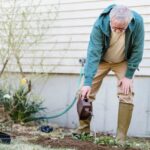A new Canadian study is delivering a hopeful message to older adults and those who care for them: it is never too late to recover. Researchers at the University of Toronto have found that almost one in four adults aged 60 or older, who began a national study reporting poor well-being due to health problems, pain, low mood, or social isolation, were able to achieve optimal well-being within just three years. This remarkable rebound challenges conventional assumptions about ageing and offers fresh insight into resilience later in life.
Lead author Mabel Ho, a recent doctoral graduate from the University of Toronto’s Factor-Inwentash Faculty of Social Work (FIFSW) and the Institute for Life Course and Aging, emphasised the practical importance of the findings. “This isn’t just a story of resilience—it’s a roadmap for how we can help more older adults recover and thrive,” she said. “Our results highlight the powerful role that lifestyle choices and psychosocial supports can play in shaping healthy ageing trajectories.”
For the study, “optimal well-being” was defined as more than the absence of illness. Participants had to be free from severe physical, cognitive, mental, or emotional problems that interfered with daily life, while also reporting strong physical health, happiness, mental wellness, and life satisfaction. Notably, the study focused only on those who began in suboptimal health, allowing the researchers to examine the extent of improvement over time.
The findings revealed that certain factors significantly increased the likelihood of recovery. Participants who reported strong psychological and emotional wellness at the outset were more than five times as likely to achieve optimal well-being as those struggling with poor psychological health. Other characteristics associated with recovery included maintaining a healthy body weight, exercising regularly, avoiding insomnia, refraining from smoking, and participating in social activities. Together, these findings show the importance of both physical and social health in promoting recovery.
“It’s incredibly encouraging to see that with the right supports and lifestyle, many older adults can reclaim full health, happiness, and independence—even after serious challenges,” said Ho. Senior author Esme Fuller-Thomson, Director of the Institute for Life Course and Aging and Professor at the FIFSW, added: “Too often, the focus in ageing research and geriatric practice is on decline and disability. Our findings disrupt that narrative. Older adults can and do bounce back—and we need to build systems that support recovery.”
Published this week in PLOS One, the study analysed data from 8,332 respondents who were aged 60 and older at the time of follow-up. For Ho, the implications extend beyond statistics: “We want this study to reshape how society views ageing. With the right resources and supports, older adults don’t just endure after experiencing poor health or well-being—they thrive.”
More information: Mabel Ho, Esme Fuller-Thomson, Reclaiming wellness: Key factors in restoring optimal well-being in the Canadian Longitudinal Study on Aging, PLOS One. DOI: 10.1371/journal.pone.0329800
Journal information: PLOS One Provided by University of Toronto








